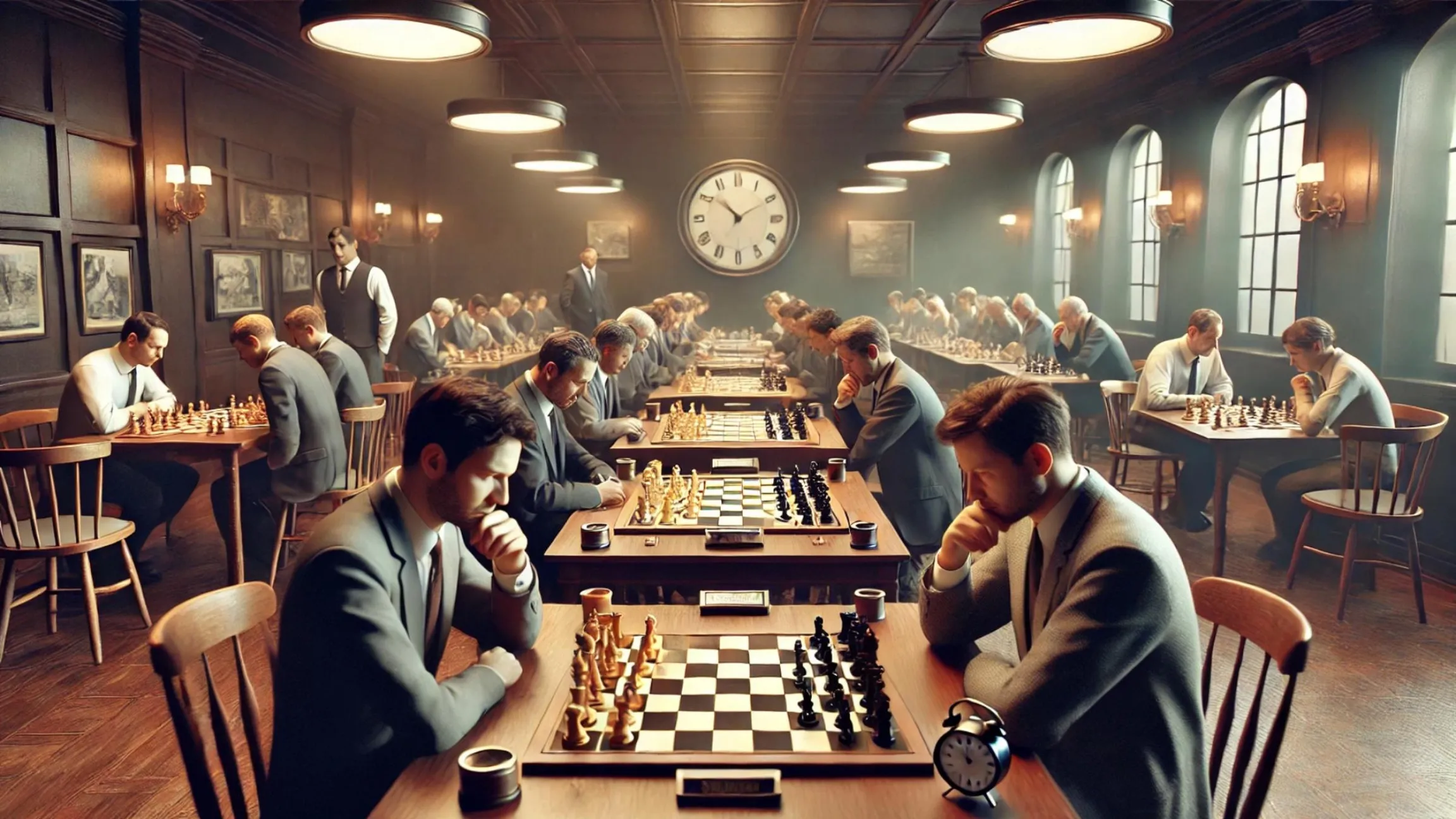Chess is a strategic board game and one of the oldest and most renowned mental sports in the world. With a deep-rooted history dating back more than a millennium, chess combines strategic thinking, tactical planning and psychological skill. This article looks at the origins, rules, competitive formats and cultural significance of chess.
Origins and history
The origins of chess can be traced back to 6th century India, where an early form of the game called "Chaturanga" was played. This game spread through Persia and the Islamic world to Europe, where it developed into the modern form of chess in the Middle Ages.
Chess underwent an institutional and strategic revolution, particularly in the 19th century. The founding of international organizations, such as the FIDE (Fédération Internationale des Échecs) in 1924, laid the foundation for uniform competition rules and the establishment of world championships.
Chess still enjoys great recognition worldwide today and has become increasingly popular thanks to online platforms such as Chess.com and lichess.org as well as series such as "The Queen's Gambit" on Netflix.
The chessboard and the pieces
The chessboard consists of 64 squares, which are alternately light and dark in color. Each of the two player teams has 16 pieces:
1 King: The most important piece to protect.
1 Queen: The strongest piece with far-reaching move options.
2 rooks: Move horizontally or vertically across any number of squares.
2 bishops: Move diagonally across the board.
2 knights: Move in an L-shape and can jump over other pieces.
8 pawns: Move forward and capture diagonally.
The pieces are placed in fixed positions at the start of the game, with the aim of "checkmating" the opponent's king.
Rules and gameplay
Chess is a turn-based game in which the players take turns moving one piece at a time. Each piece has specific move rules. The game usually ends by:
Checkmate: The king can no longer escape from check.
Remis: The game ends in a draw due to stalemate, repetition of moves, the 50-move rule or insufficient material.
Another key element is time management. Many games are played with a fixed time limit, which puts pressure on the players and requires tactical skill.
Competition formats and strategies
Chess competitions take place in various formats:
Classical chess: Long thinking time (e.g. 90 minutes per player for 40 moves).
Quick chess: Shorter thinking time (10-25 minutes).
Blitz chess: Very short thinking time (under 10 minutes).
Bullet chess: Extremely fast games (under 2 minutes).
Strategically speaking, chess requires mastery of different phases of the game:
Opening: Development of the pieces and control of the center.
Middle game: Tactical attacks and positional play.
Endgame: Reduced material and targeted exploitation of small advantages.
The sport of chess worldwide
Chess is now a global sport with millions of players and numerous international tournaments. The World Chess Championship is the most prestigious title, made famous by players such as Garry Kasparov, Magnus Carlsen and Bobby Fischer.
Chess is also promoted in educational institutions as it has been proven to improve cognitive skills such as problem solving, memory and concentration.
Health benefits
Chess not only provides mental stimulation, but also helps to reduce stress and increase cognitive flexibility. The sport promotes patience, critical thinking and long-term planning, which has a positive impact on professional and everyday life.
Cultural significance
Chess is a symbol of intelligence and strategic thinking. It has played a central role in literature, film and art and is often used as a metaphor for life choices and conflict. The universal nature of the game connects people of all cultures and ages.
Conclusion
Chess is far more than just a game - it is a reflection of strategy, intuition and creativity. Whether as a leisure activity, competitive sport or educational tool: chess offers a fascinating challenge for everyone
Chess-Clubs
Show allFind sports clubs of the sport Chess in your area, become a member and organize yourself in your club.

